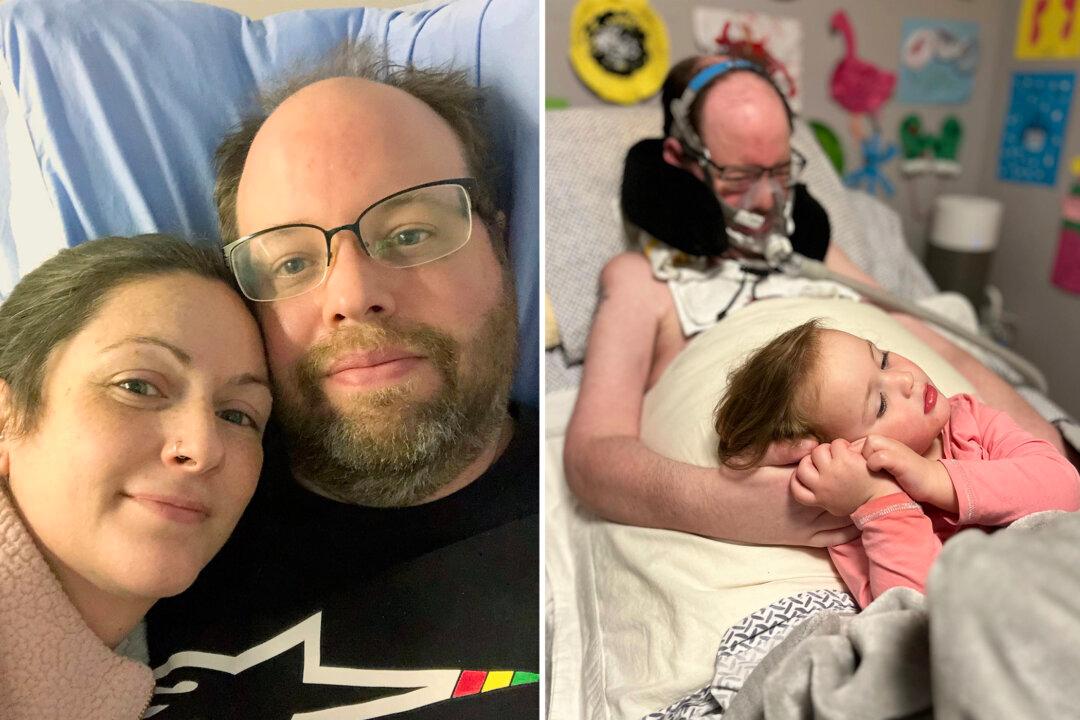A devoted wife and mom, who is caring full-time for her husband with the terminal motor neuron disease Amyotrophic Lateral Sclerosis (ALS) is giving her all to making core memories for their 3-year-old daughter to help the little girl experience what life is like as a happy family of three.
Lindsay Rodney, 38, lives with her 45-year-old husband, Adam Rodney, and their daughter, Frankie, in Canada’s Ottawa Valley. Mr. Rodney was diagnosed with (ALS), also known as Lou Gehrig’s Disease, in February 2021.





